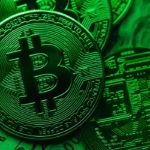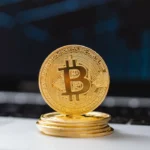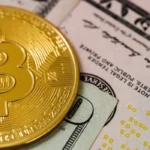If you’re a resident of Massachusetts, or anywhere in Cape Cod, and you’ve recently come across a collection of old gold & silver coins, you may be wondering: What are these worth? Should I sell gold and silver coins? Where do I begin? This guide breaks down the essentials of evaluating old gold & silver coins before selling, especially for first-time or casual sellers who want to ensure they receive fair market value.
Whether your coins are inherited, found in storage, or part of a personal collection, learning the basics of coin evaluation is crucial to making informed, confident decisions.
1. Understanding the Value of Old Silver & Gold Coins
Not all old silver & gold coins are created equal. Just because a coin is old doesn’t mean it’s valuable—but some might surprise you.
Here are the key factors that influence a coin’s value:
- a) Rarity
Coins that were minted in smaller quantities or have limited surviving specimens are often highly valuable. Always check the mintage year and the mint mark.
- b) Demand
Even if a coin isn’t rare, it can be worth more if it’s in high demand among collectors (e.g., Morgan silver dollars, early American cents, etc.).
- c) Condition (Grade)
Coin grading ranges from “poor” to “mint state.” Small differences in condition can dramatically impact value. Avoid cleaning your coins—it can reduce value.
- d) Metal Content
Coins made from precious metals like gold, silver, or platinum have intrinsic “melt value” based on current market prices, even if not highly collectible.
2. How to Identify Your Coins
Before evaluating or selling your coins in Massachusetts, take time to identify them properly. Follow these steps:
- Check the date and country of origin
- Note any mint marks (e.g., “D” for Denver, “S” for San Francisco)
- Look for design features or anomalies
- Use trusted coin identification tools like:
- The Red Book (A Guide Book of United States Coins)
- Numista.com (for international coins)
- PCGS or NGC coin database
3. Researching Coin Prices: What to Expect
Once you’ve identified your coins, research recent sales of similar coins in similar condition. Don’t rely on face value or family lore—use trusted price guides like:
- PCGS Price Guide
- NGC Coin Price Lookup
- eBay sold listings for realistic market comparisons
Keep in mind:
- The retail value listed online is not what a buyer will pay you.
- Expect offers to be wholesale, as dealers also need margin.
4. Should You Get Your Coins Appraised?
For rare, foreign, or potentially high-value coins, consider getting a professional appraisal—especially before selling.
When to Seek an Appraisal:
- If you believe the coin is exceptionally rare
- If the coin is in mint or near-mint condition
- If you have an entire collection
- If the coin contains precious metals
Local coin buyers offer free verbal evaluations and can guide you through the process.
5. Where to Sell Old Coins in Massachusetts
Selling locally allows for a trusted, transparent, and pressure-free transaction.
Check this out: https://topwaynews.com/ethan-l-wai-han-lim-a-data-driven-financial-strategist-with-a-vision-for-the-future/
A leading local coin buyer specializes in evaluating and purchasing:
- U.S. and foreign coins
- Bullion and commemorative coins
- Silver and gold coinage
- Graded and raw coins
- Coin collections and estates
Avoid selling your coins through unverified online platforms or mail-in buyers unless you’re sure of the value and have insurance.
6. Common Mistakes to Avoid
Many first-time sellers unknowingly make these mistakes:
- Cleaning coins: This can reduce numismatic value
- Selling by weight only: Some coins are worth far more than their melt value
- Not shopping around: Always get 2–3 quotes if unsure
- Assuming age = value: Some 19th-century coins are common; some 20th-century coins are rare
- Rushing to sell: Take time to identify and assess before deciding
7. How to Preserve Value Before Selling
If you’re not selling right away, store your coins correctly to retain their condition:
- Use acid-free holders or flips
- Avoid direct contact; wear gloves if needed
- Store in a cool, dry place away from sunlight
- Never polish or chemically treat coins
FAQs
Q1: Are old coins always worth more than face value?
Not necessarily. Value depends on rarity, condition, demand, and metal content. Some coins may be worth only a few cents, others hundreds or thousands.
Q2: How do I know if my coin is silver or gold?
Look for markings like “.999,” “Sterling,” or karat stamps. You can also bring your coin to a local buyer for free testing.
Q3: Can I sell damaged or worn coins?
Yes, but the value may be significantly reduced unless the coin is extremely rare or made of precious metal.
Q4: Should I sell coins online or locally?
Selling locally (e.g., at Eagle Coins Gold and Silver Buying in Harwich) offers safety, immediate payment, and no shipping risk. Online sales can work if you know the exact value.
Q5: Do coin buyers accept foreign coins?
Yes, especially if they are made of gold or silver. However, not all foreign coins have value beyond metal content—get them evaluated first.
Final Thoughts
Selling old gold & silver coins can be rewarding—both financially and historically—if done right. Take time to research, preserve, and identify what you have before heading to the market.



